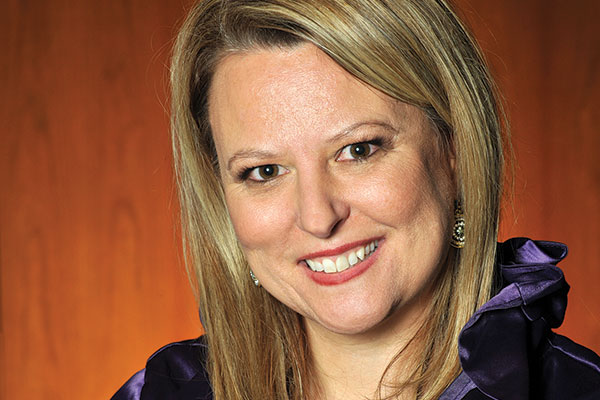When Cancer Happens Does It Take Courage to Hope?
by Kelly Grosklags, LICSW, BCD
In my oncology psychotherapy practice, I see people daily who dance with hope. It is a bittersweet word to many, as they fear they will be let down hard if they allow themselves to believe in something, to hope for something. But, no matter the circumstances, hope is always available.
When you’re diagnosed with cancer, you hope for a cure. Of course! But cure is not always possible. So, then what? Is there no hope? While the ultimate hope of a cure may be off the table, there remains hope for stability, hope for tolerable treatment options, hope for no evidence of disease, hope for support, hope for love and other kinds of healing. Sure, you may feel defeated when treatment doesn’t work. And this can cause significant anxiety and grief, which you will need to process and talk out loud about. However, most people will eventually transition to thinking about what their next goal or wish is, the next thing they hope for.
A beautiful example of this is a survivor I worked with who was very optimistic about an upcoming scan. He would say, “I have the choice to be optimistic and hope for the best, or to worry and focus on the negative. The outcome will be the outcome, but getting to the outcome will be more comfortable if my energy is hoping for the best.”
After his scan, he told me the news was not good; in fact, there were more tumors. “Too many to count,” he said. “There is still hope. We will switch treatments, and my hope will be that it is tolerable and can shrink the tumors.”
It’s important to realize that hope isn’t about flowers, and balloons, and magical unicorns. Hope is a form of medicine. It gives us a mental break from negativity and fear. It helps us stay in the moment and believe in ourselves. As a therapist, I want people to view hope as an intention, an avowing of what we want. State it. Let it be your mantra, your prayer, your anchor for getting through the day.
I often hear people say, “I’m not sure if my hope is realistic.” I think we need to get out of our heads and allow ourselves to have a full mind-body-spirit experience with individual moments in life, including illness. All of us have been disappointed and can become bitter, cynical, and numb to the possibility that things will get better. This is, ultimately, our choice. Hope is a choice. It is a decision about what energy we want to carry around.
Hope is a form of medicine. It gives us a mental break from negativity and fear.
One of the most profound examples of hope I’ve seen was displayed by a woman with terminal cancer. She was hopeful that her treatment would work and would give her more time, which is a common hope of people with terminal disease. And it did; she got five more years than originally predicted. At the end, when her cancer became more aggressive and she knew her life was limited, she told me many people were surprised she wasn’t more devastated and they worried she wasn’t accepting reality.
She explained to them, “On the contrary, I am very aware death is close, but I remain hopeful that my days will be meaningful. I am hopeful I will have great pain control and that my appetite returns somewhat, now that I am free from chemo. I hope to again taste and enjoy my favorite foods. I hope that my family and friends will realize they are everything to me and they have been the reason I could do these past five years. I am grateful for the time I have had and want the remaining to be the best it can.”
You see, hope is medicine. And its intensity does not need to waiver based on circumstances. Now to the question: Does it take courage to hope? The short answer is yes; choosing hope does take courage.
As you progress through cancer, I wish you the courage to hope and the strength to keep believing in something, as there is always room for hope of some kind. I challenge you each day to write down your hope (your intention) on paper. Nothing is too small to hope for. And if, right now, you feel skeptical or hopeless, maybe a good place to start is to hope that someday, soon, you will feel hopeful.
For nearly 25 years Kelly Grosklags, who has a private psychotherapy practice in Minneapolis, MN, has dedicated her practice to minimizing suffering through her work in oncology, palliative care, and hospice. An experienced therapist and speaker, Kelly created Conversations with Kelly inspirational events as a public healing forum to broaden her reach as a psychotherapist, social worker, and healer for patients and families. You can learn more about Conversations with Kelly at facebook.com/CWKHEALS.
This article was published in Coping® with Cancer magazine, November/December 2017.


